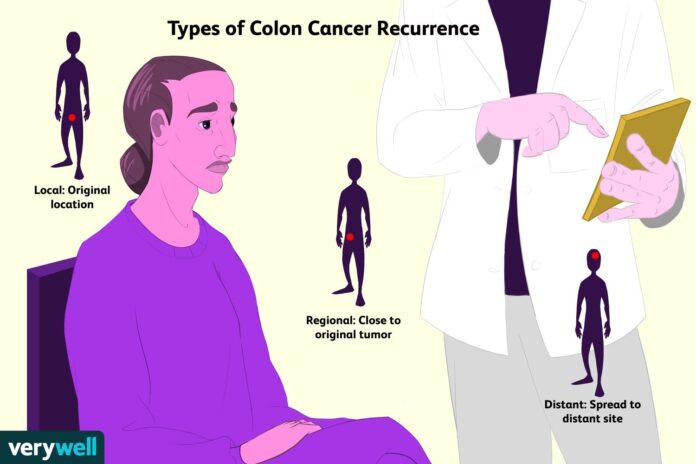
Understanding the High Risk: Exploring the Recurrence Rate of Colon Cancer
Colon cancer, also known as colorectal cancer, is the third most common cancer worldwide. It affects both men and women, and the risk of developing it increases with age. While medical advancements have improved the survival rate for patients, there remains a significant concern for the recurrence of this deadly disease. Understanding the factors that contribute to the recurrence of colon cancer can assist in better management and prevention.
What is the Recurrence Rate of Colon Cancer?
The recurrence rate of colon cancer refers to the likelihood of the disease reappearing after initial treatment. It is crucial to take into account the stage at which the cancer was diagnosed and the type of treatment received when determining the likelihood of recurrence. Recurrence can occur in local, regional, or distant areas of the body. Local recurrence refers to the growth of cancer cells near the initial site, regional recurrence involves the same area or lymph nodes, while distant recurrence means the cancer has spread to other organs.
Factors Contributing to Recurrence
Several factors can increase the risk of colon cancer recurrence, including:
1. Stage of Cancer: The stage of cancer at diagnosis is one of the most critical factors influencing recurrence. Generally, the higher the stage, the greater the chance of recurrence. Stage I cancers have a lower risk of recurrence, while stage IV indicates metastasis and a higher likelihood of recurrence.
2. Lymph Node Involvement: The presence of cancer cells in the lymph nodes indicates a higher risk of recurrence. Lymph nodes act as a pathway for spreading cancer cells to other regions of the body.
3. Tumor Size and Grade: Larger tumor sizes are associated with a higher risk of recurrence. Additionally, poorly differentiated tumors or those with high-grade cells are also more prone to recurrence.
4. Genetic Factors: Genetic mutations such as Lynch syndrome or familial adenomatous polyposis (FAP) can increase the risk of colon cancer recurrence.
5. Adjuvant Therapy: Adjuvant therapies such as chemotherapy or radiation are often prescribed after surgery to lower the chances of recurrence. Compliance with these treatments can significantly affect the risk of recurrence.
6. Age: Older individuals tend to have a higher risk of recurrence, mainly due to a weaker immune system and other comorbidities that may interfere with treatment.
FAQs Section:
1. Can diet affect the recurrence of colon cancer?
While diet alone cannot guarantee the prevention of colon cancer recurrence, a healthy diet rich in fruits, vegetables, whole grains, and lean proteins can improve overall health and reduce the risk of recurrence. It is advisable to limit the intake of red and processed meats, saturated fats, and sugary foods.
2. How often should I undergo follow-up screenings after treatment?
The frequency and duration of follow-up screenings may vary depending on the individual’s stage of cancer, prior treatments, and response to therapy. In general, regular colonoscopies are recommended every 3-5 years for the first few years after treatment.
3. Can exercise help reduce the risk of recurrence?
Regular physical activity has been shown to improve overall health and reduce the risk of cancer recurrence. Engaging in moderate-intensity exercise for at least 150 minutes per week, such as brisk walking or swimming, can have a positive impact on preventing colon cancer recurrence.
4. Can stress influence the recurrence of colon cancer?
While stress does not directly cause cancer, chronic stress can weaken the immune system and hinder recovery from treatment. It is crucial to manage stress through relaxation techniques, counseling, or support groups.
5. Are there any targeted therapies available for colon cancer recurrence?
Targeted therapies, such as monoclonal antibodies and tyrosine kinase inhibitors, are increasingly being used to treat advanced or recurrent colon cancer. These therapies target specific molecular abnormalities in cancer cells and have shown promising results in reducing recurrence.
Conclusion:
Understanding the risk factors associated with colon cancer recurrence is essential for patients and healthcare providers to devise appropriate treatment plans and follow-up strategies. Advances in medical research and personalized therapies offer hope for reducing the recurrence rate and improving survival rates. By adopting a healthy lifestyle, adhering to treatment plans, and seeking regular screenings, individuals can empower themselves against the high risk of colon cancer recurrence.

















